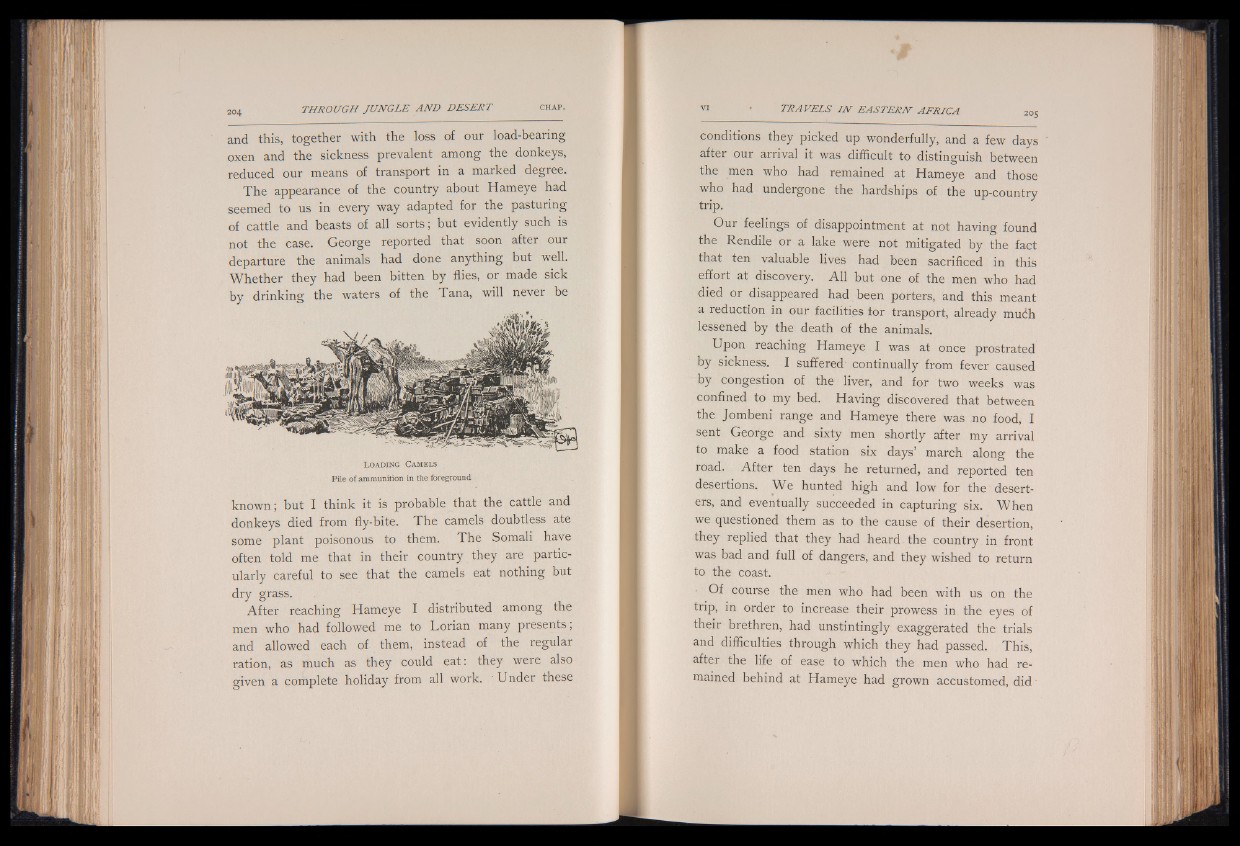
and this, together with the loss of our load-bearing
oxen and the sickness prevalent among the donkeys,
reduced our means of transport in a marked degree.
The appearance of the country about Hameye had
seemed to us in every way adapted for the pasturing
of cattle and beasts of all sorts; but evidently such is
not the case. George reported that soon after our
departure the animals had done anything but well.
Whether they had been bitten by flies, or made sick
by drinking the waters of the Tana, will never be
L o a d in g C a m e l s
P ile o f am m u n it io n in th e fore g ro un d
known; but I think it is probable that the cattle and
donkeys died from fly-bite. The camels doubtless ate
some plant poisonous to them. The Somali have
often told me that in their country they are particularly
careful to see that the camels eat nothing but
dry grass.
After reaching Hameye I distributed among the
men who had followed me to Lorian many presents,
and allowed each of them, instead of the regular
ration, as much as they could eat: they were also
given a complete holiday from all work. Under these
conditions they picked up wonderfully, and a few days
after our arrival it was difficult to distinguish between
the men who had remained at Hameye and those
who had undergone the hardships of the up-country
trip.
Our feelings of disappointment at not having found
the Rendile or a lake were not mitigated by the fact
that ten valuable lives had been sacrificed in this
effort at discovery. All but one of the men who had
died or disappeared had been porters, and this meant
a reduction in our facilities for transport, already muih
lessened by the death of the animals.
Upon reaching Hameye I was at once prostrated
by sickness. I suffered' continually from fever caused
by congestion of the liver, and for two weeks was
confined to my bed. Having discovered that between
the Jombeni range and Hameye there was no food, I
sent George and sixty men shortly after my arrival
to make a food station six days’ march along the
road. After ten days he returned, and reported ten
desertions. We hunted high and low for the deserters,
and eventually succeeded in capturing six. When
we questioned them as to the cause of their desertion,
they replied that they had heard, the country in front
was bad and full of dangers, and they wished to return
to the coast.
■ Of course the men who had been with us on the
trip, in order to increase their prowess in the eyes of
their brethren, had unstintingly exaggerated the trials
and difficulties through which they had passed. This,
after the life of ease to which the men who had remained
behind at Hameye had grown accustomed, did